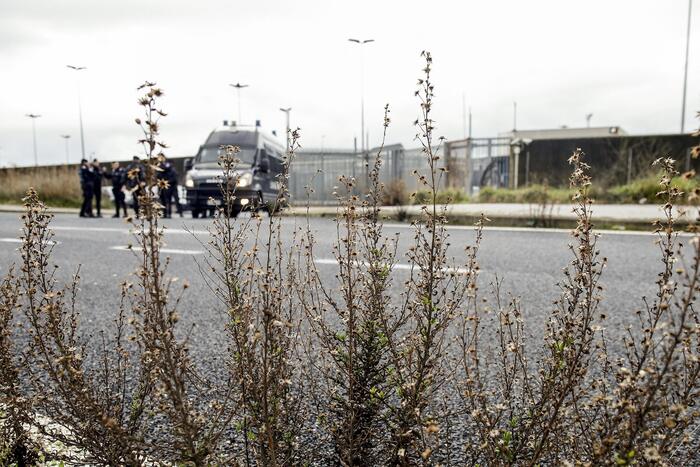Daniel Santoro
10/04/2020 - 19:56
Clarín.com
Politics
The leak of the AFI's secret minutes between 2016-2018 caused intelligence delegates assigned to countries such as Lebanon, where the terrorist group Hezbollah, which is accused of the attacks on the Israeli embassy and the AMIA, has its headquarters. ,
urgently ask to be repatriated
together with their families.
They are afraid of being attacked, among other serious consequences.
Not only were the names of more than 2,000 agents made public, but missions reserved abroad and the internal organization chart of “the house”, endangering not only operational agents but also analysts and “relationships of trust” with security services. intelligence from other countries.
According to two sources familiar with the AFI folds,
"a similar situation would happen to the delegate in Colombia"
and in other countries.
But the impact of the leak also broke the “trust test”
of agencies in other countries in a world where personal tracking has been replaced by digital meddling.
Miguel Ángel Toma, former head of the SIDE, evaluated the situation of vulnerability:
“In terms of relations with collateral services, this leak generates enormous mistrust that will affect the necessary exchange of sensitive and reserved information in order to fight against Transnational threats such as terrorism, drug trafficking, arms trafficking, money laundering, human trafficking, among others.
Argentina has agents deployed around the world, including in areas of high conflict where the protection of identity is synonymous with survival ”.
The US forms a communications interception network called the "five eyes" with Great Britain, Australia, New Zealand and Canada.
It was made based on the Echelon network that was designed to face the Soviet Union in the Cold War.
Thus, the US in 2013 had the capacity to store three billion data.
That confidence had allowed the supply of equipment used today by developed countries in the fight against international terrorism and drug trafficking for a country that has already suffered two attacks: the Israeli embassy (1992) and the AMIA (1994).
"Now, after this leak, those offers will be restricted again,"
said another source familiar with this underworld.
Alberto Fernández and Santiago Cafiero with the AFI inspector Cristina Caamaño at the Casa Rosada.
A veteran with knowledge of the agency said that "with this act they violated the principle of any intelligence service: don't get caught."
On other pages are the retirements or resignations of former directors such as José Luis Vila
(the same one who was threatened by sending a package of trotyl to the house in 2018), the prosecutor Eduardo Miragaya, and the director of Antiterrorist Operations whose name is withheld. , among many others.
The minutes of resolutions 174 to 195, of the year 2016, of the Federal Intelligence Agency that leaked the current management.
Names and DNI were crossed out, to prevent the identification of the agents mentioned there.
Later in the minutes there are dozens of secret uprisings for agents who had to testify in causes such as the alleged cover-up of the escape of the financier of ephedrine Ibar Pérez Corradi in which the former head of the AFI, Oscar Parrilli, among others, was charged. .
A lookalike of an ultra K piquetero leader even appears.
The minutes also include the transfer of the shares of the former Saporiti news agency
- which operated in the basements of Passage Barolo - which were in the name of the former director of Counterintelligence, Antonio "Jaime" Stiuso, or another director.
Even the resignation of his former adversary, the director of Reunion, Fernando Pocino.
The handwritten minutes for a safety issue also count, for example,
extra payments to agents for "contingencies suffered in acts of service",
that is, injuries.
Now any international intelligence service will be able to cross the name of the injured person and the date with secret operations and deduce classified actions, said an insider of "La Casa".
There are also registered
payments for "risky operations"
and even the names of the AFI Medal commission.
The name of the decorated personnel can only be known when the agent dies.
Former spy Antonio "Jaime" Stuiso appears on the AFI's list of leaks.
Also included are
the list of trips abroad, including one to Las Vegas,
that any foreign intelligence service can link, by putting together puzzles, with secret events or follow-ups of suspects.
Members of Juntos por el Cambio, such as Cristian Ritondo and José Cano, among others, are preparing an artillery of questions so that this week the AFI inspector,
Cristina Caamano, is held accountable for the largest leak of secret information in Argentine history.
Ritondo and Cano want the head of the Commission for the Supervision of Intelligence Organizations and Activities, Leopoldo Moreau, to open an investigation to determine who is responsible for the delivery of the minutes that reflect the activities of the AFI for three years.
Legislators will surely ask who is
the official who bears the “1336” stamp
that appears on all acts classified as secret.
It is that "1336" should have left only the names requested by the federal judge of Lomas de Zamora, Juan Pablo Auge, and cross out all the others.
The entire scandal of the leaks took place in a particular context: Caamaño closed bases and practically centralized the personnel at the CITEFA base on General Paz Avenue.
Even some agents close to the former head of the AFI, Gustavo Arribas, were sent to "a new Cromagnon."
The memoirs recall that Néstor Kirchner when he took office in 2003 sent the spies inherited from Menemism and radicalism to an empty building where they had to meet schedules and "make content analysis of a book", as a way to invite them to leave.
For the opposition,
Caamano has been “overreacting” by making complaints for illegal intelligence against Arribas and Majdalani,
some with justification and others as risky as the one that included the leakage of the private data of thousands of agents.




/cloudfront-eu-central-1.images.arcpublishing.com/prisa/5SBFUSNTTYBTPIUKZSLTIHZHMQ.jpg)



